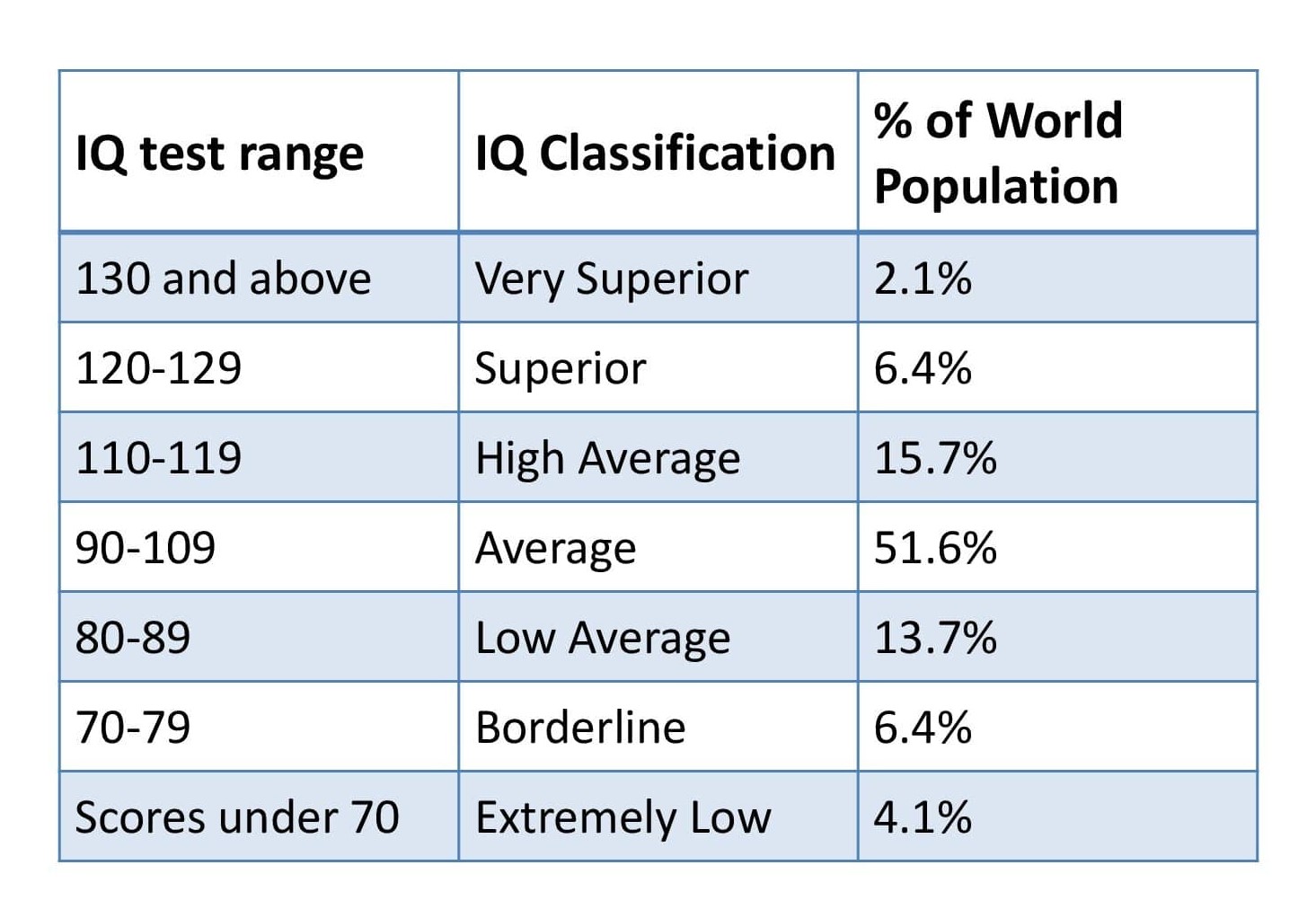The concept of IQ, or Intelligence Quotient, has fascinated psychologists, educators, and the general public for decades. Many people wonder about the upper limits of IQ scores and what they signify about human intelligence. As we dive deeper into this topic, we aim to explore how high IQ scores can actually go, the implications of extreme scores, and what factors contribute to these high levels of intelligence.
In this article, we will examine the history of IQ testing, the methodologies used to measure intelligence, and the various theories that attempt to explain the phenomenon of high IQ scores. We'll also discuss the implications of having a high IQ score and how it affects individuals in various aspects of life. By the end of this article, you will have a comprehensive understanding of IQ scores and what they can tell us about human potential.
As we explore the question of how high does IQ score go, we will provide insights and data from reputable sources, ensuring that the information is both credible and informative. Whether you are a student, a parent, or simply someone interested in the field of psychology, this article aims to satisfy your curiosity about IQ and its limits.
Table of Contents
- History of IQ Testing
- Understanding IQ Scores
- Scale of IQ Scores
- Factors Affecting IQ
- Notable High IQ Scores
- Implications of High IQ
- Criticisms of IQ Testing
- The Future of IQ Testing
History of IQ Testing
The history of IQ testing dates back to the early 20th century when French psychologist Alfred Binet developed the first practical intelligence test. The purpose of this test was to identify children who needed special educational assistance. Binet's work laid the groundwork for future IQ tests, including the Stanford-Binet Intelligence Scale, which introduced the concept of the IQ score.
Since then, various models and tests have been developed, each with its own approach to measuring intelligence. These tests often include verbal, mathematical, and spatial reasoning components, aiming to provide a comprehensive assessment of an individual's cognitive abilities.
Understanding IQ Scores
IQ scores are typically calculated based on a standardized scale, where the average score is set at 100. Scores are distributed in a bell curve, with the majority of the population falling within one standard deviation of the mean (85 to 115).
Scores above 130 are often considered gifted, while scores above 145 denote exceptionally high intelligence. However, the interpretation of these scores can vary depending on the specific test used and its design.
Scale of IQ Scores
- Below 70: Significantly below average (possible intellectual disability)
- 70-84: Below average
- 85-114: Average
- 115-129: Above average
- 130-144: Gifted
- 145-159: Highly gifted
- 160 and above: Exceptionally gifted
Factors Affecting IQ
Several factors can influence an individual's IQ score. These factors include genetics, environment, nutrition, and education. Research has shown that both nature and nurture play significant roles in determining intelligence. For instance, studies have indicated that individuals with highly educated parents tend to score higher on IQ tests, suggesting that a stimulating environment can enhance cognitive abilities.
Environmental Influences
- Access to quality education
- Parental involvement and support
- Socioeconomic status
- Exposure to enriching experiences
Notable High IQ Scores
Throughout history, there have been individuals who have achieved astonishingly high IQ scores. Some of these prodigies include:
- William James Sidis: Estimated IQ of 250-300
- Marilyn vos Savant: Recorded IQ of 228
- Terence Tao: IQ estimated at 220-230
These individuals have made significant contributions to their respective fields, showcasing the potential of high intelligence.
Implications of High IQ
Having a high IQ can lead to various advantages in life, including better academic and career opportunities. Individuals with high IQs often excel in problem-solving, critical thinking, and creative tasks. However, it is essential to note that a high IQ does not guarantee success or happiness. Other factors, such as emotional intelligence, social skills, and perseverance, also play crucial roles in determining an individual's overall well-being and achievements.
Criticisms of IQ Testing
Despite its widespread use, IQ testing has faced significant criticisms. Critics argue that these tests may be culturally biased and do not account for diverse forms of intelligence, such as emotional or social intelligence. Additionally, some contend that focusing solely on IQ scores can lead to labeling and limiting individuals based on their test results.
The Future of IQ Testing
As our understanding of intelligence continues to evolve, the future of IQ testing may incorporate more holistic approaches to assessment. Researchers are exploring alternative methods that account for emotional, social, and practical intelligence, aiming to provide a more comprehensive view of an individual's capabilities.
Conclusion
In summary, IQ scores can reach impressive heights, with notable individuals achieving scores above 200. However, it is essential to recognize that intelligence is multifaceted and influenced by various factors, including environment and education. While high IQ can offer certain advantages, it is not the sole determinant of success or fulfillment in life.
We encourage you to share your thoughts on this topic in the comments below, and feel free to explore other articles on our website for more insights into psychology and intelligence.
Penutup
We hope you found this article informative and engaging. Understanding IQ and its limits can provide valuable insights into human potential. Thank you for visiting our site, and we look forward to seeing you again soon!

![How High Does IQ Score Go [Guide]](https://i2.wp.com/personalityanalysistest.com/wp-content/uploads/2022/01/how-high-does-iq-score-go.jpg)


